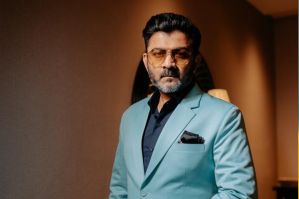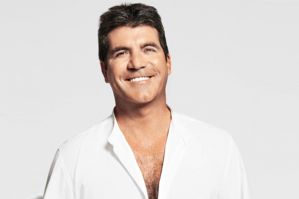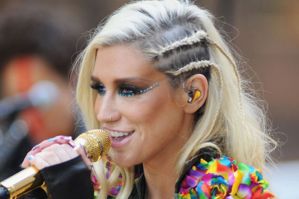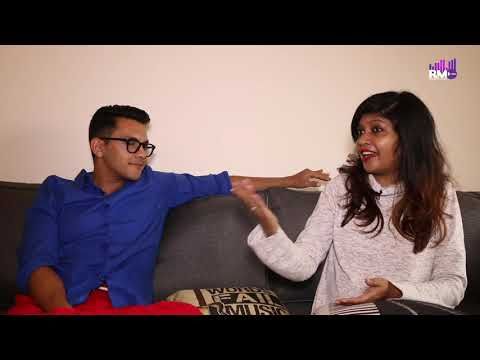Wanted Gujarati music to go global: Rushi Vakil

World music exponent Rushi Vakil is a multi-talented musician with an eclectic taste. Trained under his father tabla maestro Pandit Divyang Vakil on classical tabla, Vakil Jr taught himself the keyboard as a child and today he is professional musician contributing his skills to composing albums and performing with his father’s ensemble ‘Talavya’.He recently released a world fusion album ‘Click Kar’ (Crescendo-Universal) with inputs from foreign artistes including an opera singer. Radioandmusic.com caught up with Vakil for a tete-a-tete on his album and musical philosophy.
Excerpts:
Tell us about your new album.
The album is called ‘Click Kar’ and is of contemporary Gujarati music. Each song on the album is of a different music genre with Gujarati lyrics and the genres include rap, jazz, opera based musical, country, trance and Sufi. The album has been recorded in India, USA, and Canada and each of the eight songs sung by a different artiste from around the world.
What were the roots or inspiration for making the album?
Being an ardent follower of world music, it troubled me that the beats couldn’t be included in Gujarati music. None of my friends listened to Gujarati music, except for ‘garba’ around Navratri or devotional songs. So I set out to create an album that would compile different world music genres in Gujarati language.
How were the artists contacted, and the theme and feel of the album maintained?
Each song on the album is of a different music genre and each has its own story about how it was created. For example, there are two non-Gujarati singers-Natalie Di Luccio in ‘Prarthana’ and Shweta Subram in Ghar Maru’-both from Toronto.
Natalie is an opera singer and very open to experimentation. Three years ago I watched some of her videos on YouTube and immediately decided to rope her in. Then, I hadn't decided come up with a Gujarati album, but when it was conceived I knew that I wanted to include song in the album. The song is a reflection of our backgrounds-Natalie's western classical work and my Indian classical work. It's the first time Natalie has sung in Gujarati. Shweta and I connected through Facebook. I really liked the throw of her voice. On my way to Canada I had a little time in Toronto. Things just fell into place from there. I ended up composing the song (which is a trance song) on aharmonium while on a classical tabla tour. The rap song ‘Adako Dadako was written and sung by famous Gujarati jock from Radio Mirchi - RJ Dhvanit. Around that time, Dhvanit called me up and told me that this Indian American rapper was in Ahmedabad and that I had to meet him. Taizu and I met and I shared the song with him. He immediately understood the vibe of the song and penned down some words in English. Within an hour we were in a studio.
How are you planning to promote and market it using the Internet space?
The internet is at the center of marketing for this album because there is such a diverse audience geographically, ethnically, and with regards to musical sensibilities. The songs are going to be shared through various content platforms, like YouTube and Soundcloud. Several songs are also going to have music videos.
We are (also) trying to tap into the power of social media to reach the masses including facebook and twitter. We'll be hosting interactive sessions online with the artistes, reaching out to specific communities around the world.
The Internet has transformed the music industry- sales of physical music have been going down every year; can digital music truly replace it?
In one word - No. The biggest aspect about physical is that of an experience. Call me old school, but I still remember the days of cassettes where there was such a joy finding the right tape and right song. With digital, everything can be done with few quick swipes now on touch screen but does not have an emotional attachment. Even in terms of sales, physical and digital music play very different roles for an artist. Physical sales played a large role in an artist's revenue stream. With the internet transforming music consumption, music sales (physical or digital) are not as significant of an income source as they used to be. Digital music is more of a means to reach a wider realm of people and have your work heard versus a reliable revenue stream at present.
What business model do you think would be in place in the digital music space—five years on?
Piracy has been rampant, but we are also seeing a large clamping through litigation and technology to protect an artist's work. I think more and more is going to be done in this direction which will create more space for incentivising music. Thegeneral business trend is that of ‘freemium’ and premium services. The business model that I believe is going to be in place in five years is that of premium services in music as well. We already see it in the streaming music realm, but I think it will expand to download as well.
Where do you think India stands viz. overall music industry/indie music. Can indie music (pop/ rock) have a space of its own as a genuine alternative to Bollywood music?
The growth of the indie scene in India over the last few years has been explosive no doubt, but it has a long way to go when compared to global music industry. There are some great musicians but when you compare numbers, we still have very few Indie artists- more has to be done from all sides (music education, performance opportunities, artist development, etc) to nurture the industry for it to match global levels. It can be a genuine alternative to Bollywood in the near future - No. Maybe in 15 years.





















